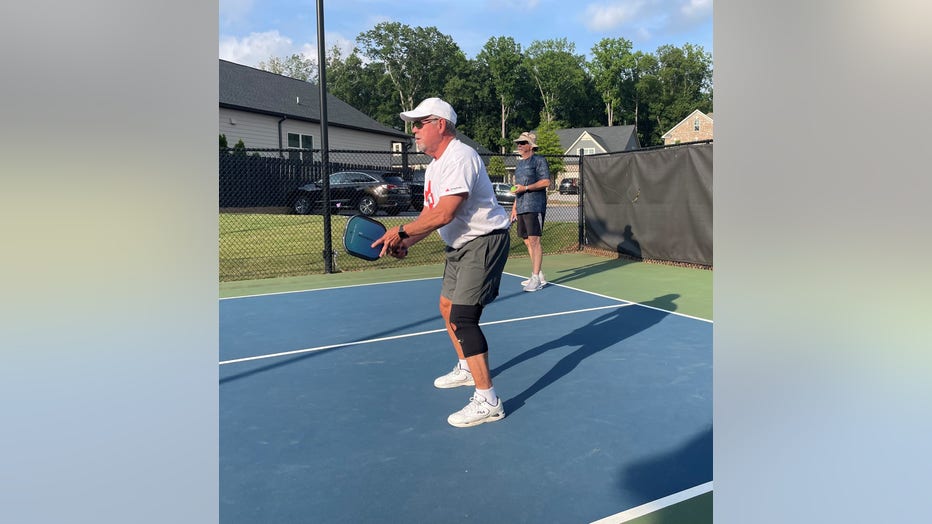Nerve freezing procedures helps relieve post-surgery pain and the need for opioids

How to freeze the pain away
If you've ever had to have surgery, you've probably worried about the pain afterwards. That fear of pain can be powerful, but there may be a way around it, for people facing knee replacements. There is a procedure to freeze the nerves and stop the pain before it starts.
LAWRENCEVILLE, Ga. - At 70, Curt Bazemore, a retired Forsyth County physical therapist and athletic trainer turned full-time grandpa-pickleball player-golfer, has had both knees replaced.
The surgery on his right knee, in 2015, Bazemore says, went pretty well.
"I did have pain," he says. "I did have I had to be on some opioids for a few days. (That was) a terrible problem. The worst problem, not only pain, was just the constipation that comes with that."
Bazemore also didn’t like the way the pills made him feel.
So, this time, before his left knee was replaced in December, Bazemore came to see sports medicine physician Dr. Clay Guynn at Sports Medicine South of Gwinnett, for a nerve-freezing procedure designed to preempt his pain.
"The main procedure we do is aimed at the nerves, the superficial nerves, that cause sensation in your knee right here," Dr. Guynn says, gesturing at his knee. "A lot of the pain that people have, especially in the first week or two, is called incisional pain. So, you’ll have a big cut down your knee right here. And so that’s what hurts people a lot of times."
Two or 3 weeks before Bazemore’s operation, Dr. Guynn used ultrasound-guided needles to freeze temporarily the superficial nerves in Bazemore’s knee, numbing them for about 3 months.

Curt Bazemore of Cumming, Georgia, underwent a nerve freezing procedure designed to relieve his post-surgery pain after a knee replacement.
Guynn says the procedure is known as cryoneurolysis. "We’re literally just putting an ice ball around the nerve," Dr. Guynn says. "There’s nothing injected into the patient’s body. It’s an ice ball around the nerve, puts it into hibernation- mode, and then that’s it. So, there are no cuts, there’s no anything like that."
Guynn says he has performed the procedure about 250 to 300 times, using a device made by iovera°, both for post-surgery incision pain and deeper knee osteoarthritis pain.
He says the practice has dramatically reduced the number of opioids doctors have prescribed for post surgery pain.
Because Bazemore had the procedure done a couple of weeks prior to his surgery, he went into the OR with his knee already numb,
"Then after surgery, it was amazing," he says. "I woke up and had no pain. I mean, really no pain at all. Went home and quickly went from crutches to a single crutch to, by the next day, I was using a cane."
Bazemore says he did not need pain pills this time around, and he says his Medicare and a supplemental plan covered the cost of the procedure.
Six months out, he is back playing pickle ball.
"Last night, I played, and the guys were like, ‘You’re at 5 five-months-after?’’ Bazemore says. "Because I was chasing some balls down that I, I couldn’t or wouldn’t, go after before."

